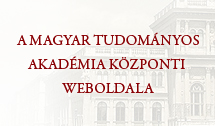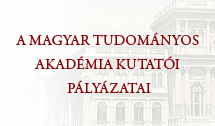Talk by Adrian Ziólkowski
The Institute of Philosophy RCH HAS cordially invites you to its upcoming talk:
Adrian Ziólkowski
What is Experimental Philosophy? A short story about using empirical methods in philosophy
Date: 28 November 2017, 16:00
Venue: 4. Tóth Kálmán st., Budapest, 1097; 7th floor
Abstract:
Experimental philosophy (also known as ‘x-phi’) is a new current in modern analytic philosophy that proposes quite a revolutionary approach to well-known philosophical problems. The crucial characteristic of experimental philosophy as a unique approach to philosophical inquiry is a conviction that at least some philosophical issues can be settled by systematic empirical studies. Such a research program in philosophy, which has been treated as an a priori domain for centuries, is an unquestionable novelty.
The proponents of experimental philosophy justify their research objectives by noticing that asserting empirically testable claims is quite common in philosophy. When philosophers present thought experiments (or ‘possible scenarios’) to illustrate their theories or argue in favor of them, they usually claim that most people would express similar intuitions about the scenario in question (for example: „most people would say that an agent in a Gettier-case has a justified true belief that p, but does not know that p”). Such claims are empirical hypotheses that can be put to test. Experimental philosophers conduct systematic, survey-based experiments to check whether the intuitions of armchair philosophers about certain philosophically significant cases are indeed supported by intuitions of people who are not „trained philosophers”.
Experimental philosophy aims at collecting data on folk intuitions concerning philosophical thought experiments and drawing philosophically significant conclusions from that data. In my talk I will provide an introduction to x-phi, its methods and most famous findings, and also mention some controversy spurred by that approach to philosophizing.
X-phi is not a monolithic movement, although most of its proponents use the same „scenario method” which consists in presenting scenarios based on philosophical thought experiments to laypeople, they draw different conclusions from the collected data. I will present divisions of branches within experimental philosophy (positive vs. negative x-phi; experimental conceptual analysis, experimental restrictivism, experimental descriptivism) and illustrate it with examples of studies conducted by experimental philosophers.
I will also discuss the problems that experimental philosophers had to face when developing their approach. I will consider main objections addressed by the opponents of experimental philosophy, such as (1) the expertise argument; (2) the quality of intuition argument; (3) the irrelevance argument. Moreover, I will analyze some of the problems noticed by experimental philosophers themselves, such as (1) measurement validity and reliability issues; (2) difficulties in separating semantic and pragmatic factors in empirical data; (3) replicability issues.
I will conclude by noticing the significant role experimental philosophy played in stimulating the recent metaphilosophical debate about methods used in philosophy, which – regardless of interesting empirical findings – makes x-phi worthwhile.


